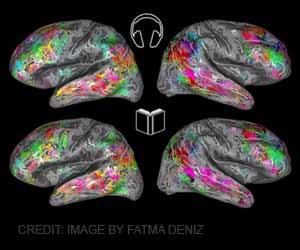Doctors can now refer to a tumor index to make more precise decisions to treat cancers. The index provides information about the prognosis of cancers, selection of appropriate therapy and a potential target for the development of new anti-cancer drug

‘Integrating the knowledge in biology, computer science, and statistics scientist have arrived at a new “Stemness” tumor index for cancers for precise treatment.
’





To perform the study, researchers at the Omics laboratory from the Department of Genetics of the FMRP combined the use of artificial intelligence algorithms, genomic data from 12,000 samples from 33 different types of tumors, and an understanding of how the progression of cancer occurs.According to Houtan Noushmehr, senior author of the study, the methodologies used in this work are part of a new trend in biomedical sciences research, a consequence of a large amount of molecular data currently available. "The present challenge is to manage, interpret and analyze different categories of data," says Noushmehr, "which requires researchers to integrate knowledge in biology, computer science, and statistics." He considers the training of young scientists to manage coherently these massive data amounts as his main task, both as a teacher and a researcher.
These results build on the group’s previous studies, including one also published in Cell, that identified important genomic features of brain tumors. "The goal is that our index can be used one day in the clinical routine," explains Tathiane Malta, first author of the study, "as additional information for the clinician to choose the most appropriate treatment for each patient and tumor." In addition to the Ribeirão Preto team, researchers from Harvard University, in the United States, and the University of Poznan, in Poland, also authored the study.
Cancer stem cells
According to a currently accepted understanding, transformations that healthy cells undergo when growing tumors include mainly two characteristics: The loss of their specific features and the acquisition of the ability to multiply in a disorderly fashion. This process can also be considered as a loss of specialization, with tumor cells become progressively undifferentiated. Typically, the sub-population of cancer stem cells "drives" tumor growth. The stemness indices developed by the researchers provide a measure of how much the tumor cells resemble stem cells.
Advertisement
Based on the idea that there is a similarity between tumor cells and stem cells, the USP researchers used a machine-learning algorithm to detect and systematize molecular characteristics of healthy stem cells and differentiated cells derived from them. The software analyzed thousands of cells at different stages of differentiation, to identify typical molecular signatures of stem cells. With this information, they created two independent "stemness-like" indices, based on gene expression and DNA methylation. The indices range from zero to one, with zero low meaning similarity to stem cells, and one high similarity.
Advertisement
The database from The Cancer Genome Atlas (TCGA) program includes samples from primary tumors of 12,000 people, covering 33 different types of cancers. Over the last ten years, scientists involved in the program have generated and stored data on genetic and epigenetic changes in tumors. Using the stemness indices, the researchers detected the tumoral degree of stemness in the TCGA samples.
Results
The main finding of the study is that stemness indices provide a measure of the path of tumor cells towards "de-differentiation," with higher indices correlating with tumor aggressiveness in many types of cancer. Accordingly, the researchers found that metastatic tumors have high rates of similarity to stem cells. In addition, the stemness indices could allow the identification of new targets for anticancer drugs, aimed at halting the progression of the cells towards de-differentiation. "If we can identify the point at which the tumor cells start to have characteristics of stem cells, we can prevent this trajectory and avoid its aggravation," Noushmehr adds.
Source-Eurekalert















